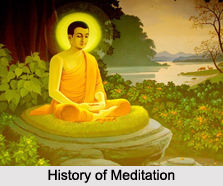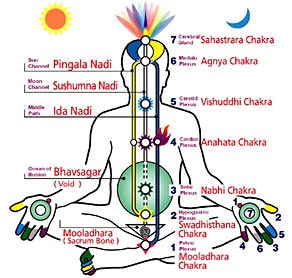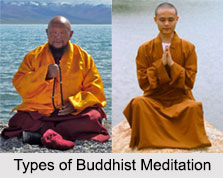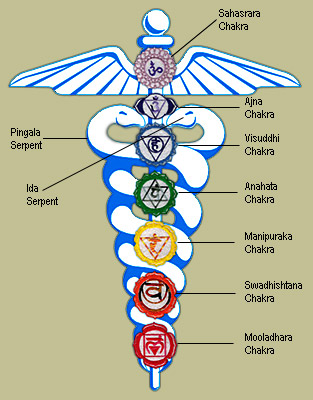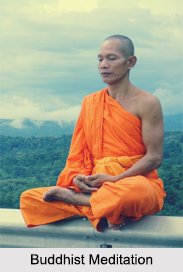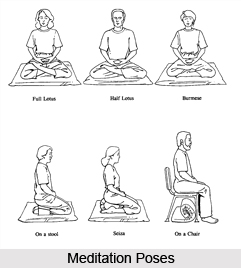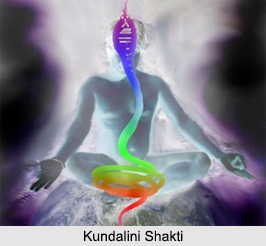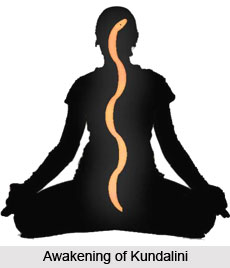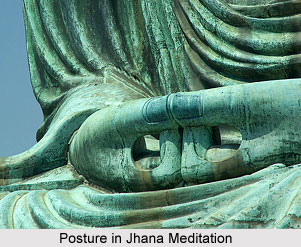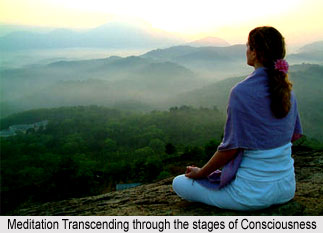 Usually there are many obstacles to meditation. The waves of irritability, jealousy, hatred and lust always try to disturb in the process. These dark waves are enemies of peaceful living, meditation and wisdom. Sometimes it is very difficult to keep the mind unruffled and pure. But in some cases the evil thoughts are not a problem at all. Occasionally they appear as a passing phase without doing much havoc. The evil thoughts giving mental suffering are a sign of spiritual progress. But for many it is difficult to have that much of sensitiveness. The obstacles and stumbling blocks on the path toward realization can be easily overcome once an intelligent and comprehensive understanding of them has been reached. It should always be borne in mind that failures are stepping-stones to success. The aspirant is guided through the ocean of spiritual endeavor by knowing about the various obstacles and the methods of overcoming them. One must train the mind properly and not be discouraged, for the journey to perfection was never completed overnight.
Usually there are many obstacles to meditation. The waves of irritability, jealousy, hatred and lust always try to disturb in the process. These dark waves are enemies of peaceful living, meditation and wisdom. Sometimes it is very difficult to keep the mind unruffled and pure. But in some cases the evil thoughts are not a problem at all. Occasionally they appear as a passing phase without doing much havoc. The evil thoughts giving mental suffering are a sign of spiritual progress. But for many it is difficult to have that much of sensitiveness. The obstacles and stumbling blocks on the path toward realization can be easily overcome once an intelligent and comprehensive understanding of them has been reached. It should always be borne in mind that failures are stepping-stones to success. The aspirant is guided through the ocean of spiritual endeavor by knowing about the various obstacles and the methods of overcoming them. One must train the mind properly and not be discouraged, for the journey to perfection was never completed overnight.
Some of the obstacles can be discussed as follows
Cessation of Practice
The mind wants variety in the practice of meditation as much as it wants variety in anything else. It rebels against monotony. But in this process cessation of practice is a grate mistake. Sadhana or spiritual practice should never be given up under any circumstances. The beginner in sadhana often hopes to acquire psychic powers in short time with full enthusiasm and zeal. When he does not achieve them, he becomes discouraged and wants to give up. He may lose faith in the efficacy of his practice and, often, even considers forgetting about it completely. The practice of meditation must be continued, but without any expectation. Gradual growth comes with sincerity, regularity and patience.
Health and Diet
For the attainment of Self-Realization, one`s body should be kept strong and healthy. A healthy mind is also important. Because body and mind are intimately connected, it is important to maintain a cheerful frame of mind at all times. Cheerfulness and good health walk hand in hand. Improper diet is a serious hindrance to spiritual progress. If the food is impure, the mind also becomes impure. Cigarettes, liquor, narcotics, and stale or aged food are most detrimental. Meals should be simple, light and nutritious. The processed or adulterated preparations should be completely avoided.
Laziness and Sleep
Laziness, drowsiness and sleep are universal obstacles on the spiritual path, and sleep is the most powerful among all. Like food, it has become an overindulged habit of long standing for most people. However, the amount of sleep necessary can be cut down drastically through regular practice of meditation. Sleep is a psychological need and may be reduced gradually and slowly. The brain needs rest for only a short time every day. Through the various yogic practices, a calm and steady mind is developed. Energy is no longer wasted on emotions and useless desires. The mind spends more time in a relaxed state, so it does not require great amounts of rest. One will have more and more time for Sadhana once a new and more pleasant pattern has been established.
Lethargy and depression also often afflict the beginner in meditation.
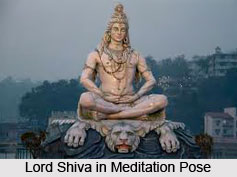 Complications of Daily Life
Complications of Daily Life
Unfavorable environments, uncongenial atmosphere and other obstacles do not necessarily lead to defeat of one`s efforts. Rather, they can serve as trials and aids in the development of such strong powers as discrimination, empathy, will and endurance. The struggle through difficult situations brings rapid progress. On the other hand, undesirable company is highly disastrous. Such contact often fills the mind with useless ideas. To avoid being pulled into negativity, the mediator should protect himself carefully from any distracting influences. People who lie and steal, or are greedy, or indulge in backbiting and pass the time with idle gossiping have can`t attain spiritual attainment. The healthiest approach is to strictly avoid them. The undesirable company also includes negative thoughts or vibrations. One should even consider curtailing the reading of newspapers, for their intent as well as effect is to tantalize the mind with waves of unrest and sensationalism. All these distractions draw the mind outward rather than focus it inward. One should cut off connections that are not beneficial and trust only the Inner Voice that dwells in one`s heart. Associate only with those whose own aspirations for perfection are uplifting and encouraging.
Useless Conversation
Spiritual power is lessened by many bad habits. Among these bad habits, one is excessive and useless talking. Diarrhoea of the tongue wastes much energy that could be utilized for personal development. Too much talking makes a person restless and unfit for the practice of meditation. The wise speak only a few words and that too when necessary. To do the practice properly Mouna or silence can be observed for about two hours daily. Fault-finding is another detrimental habit. The mind of the person who is always poking his nose into the affairs of others is always outgoing and out of control. No one can be introspective when the mind is engaged in activity of this sort. Diligent application to spiritual practice allows no time for managing the affairs of others. Self-justification is another behavioral weakness to be overcome, along with its associated characteristics i.e. self-assertion, obstinacy, dissimulation and lying. Once these weaknesses become established in the framework of the personality, it is very difficult to eliminate them, for the ego never admits its own faults.
Petty-mindedness is closely associated with backbiting and trying to pull down other people. All evils are caused by jealousy and ignorance. They can easily be battled and eradicated by always rejoicing in the welfare of others.
Uprooting the Ego
It can easily be understandable that meditation involves far more than sitting with eyes closed in concentration. It demands rigorous introspection and an overhauling of one`s personality, life patterns and values. The more serious obstacles to meditation and spiritual practice are the emotional imbalances and personality defects that nurture outward bad habits. The egoism behind the mask of human personality is one of the biggest hurdles to overcome. This lower self-arrogating nature must be whittled down, for if it persists in retaining its limited, false values. And with this bad habit no amount of Sadhana or spiritual practices will bear fruit. Power, name, fame and wealth, which strengthen and reinforce the ego, are all renounced and sacrificed by the serious aspirant. Discipline of senses and constant meditation must be cultivated in order to make progress.
The Emotions
Anger in one of the emotions and is the greatest enemy of peace. It is also the most negative of all. It is a modification of lust for when one`s desires are not gratified, one becomes angry. The mind then becomes confused, memory and understanding are lost, and things are said and done without awareness or control. Anger does great damage to one`s own physical and psychic bodies, as well as those of others. The whole nervous system is shattered by one fit of anger. Anger is very difficult to control when it has been allowed to grow and become habitual. It is much more easily controlled when it is a small ripple in the subconscious mind. One should watch the mind carefully for any signs of irritability; then control is no problem. Frequent irritation over trifling matters is a sign of mental weakness. This can be overcome by carefully developing its positive counterforce, the virtue of patience.
Fear is another debilitating emotion. It is usually a product of the imagination, but nonetheless it assumes real forms, and can be troublesome in a variety of ways. Fear manifests in many shapes, such as fear of death, fear of disease, fear of solitude, fear of company. Taking hold of the mind, imagination works havoc and makes one prey to all sorts of fear. Fear of public criticism especially stands in the way of a student`s meditative progress. Fear can be overcome by self-inquiry, devotion to a higher cause, and the cultivation of the opposite of fear, courage. Positive always overcomes negative, and courage always overcomes timidity.
Discouragement
The meditator sometimes begins to doubt the existence of an Absolute Source, his own capacity to succeed in Realization and the efficacy of his practice. Lack of faith is discouraging and is a dangerous obstacle in the path of personal development. It must be remembered that there will always be periods when one`s progress is more or less apparent. Whenever doubts arise, the student should at once seek the company of spiritually elevating people and remain under their influence for some time. Conversing with people of firm and clear faith and practice clears all doubts. Doubt will rise up again and again to mislead the aspirant. It must be destroyed beyond recovery by certainty of conviction, unshakable faith based on reason, and the understanding that difficulties are bound to manifest from time to time. It should always be borne in mind that these are but challenges that help to strengthen the practice.

